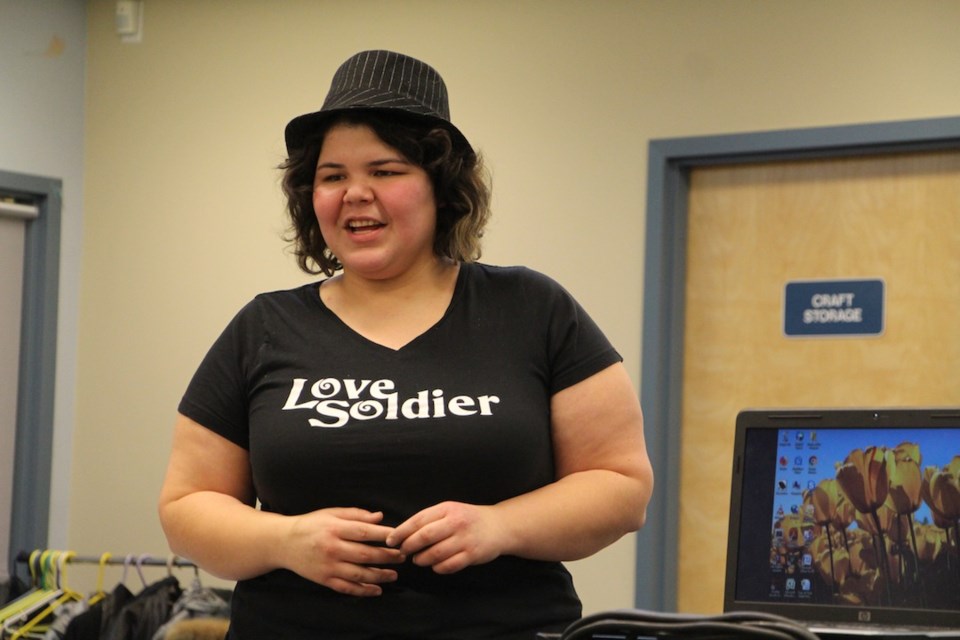Zoey Roy doesn’t mind that people are uncomfortable when she speaks, in fact she prefers it. Roy, who presented the Ally Affirmation Workshop at the Yorkton Public Library on Nov. 20, knows that people are uncomfortable when people talk about race.
“All growth is uncomfortable. The only other choice is to not grow… If you choose to be comfortable, you’re also choosing to not grow, and that’s not a value we have in our country. It’s time to feel uncomfortable and it’s time to share the burdens of discomfort so the same populations are not taking on the burdens.”
Her presentation covered the history of Indigenous people in Canada and the relationship between them and white settlers who came after, touching on things from residential schools to the current situation with child and family services. She described it as a conversation about the history of racism in Canada.
“[It was] about how some people felt the effects of marginalization in Canada, and other people are perplexed by the shortcomings of indigenous people in Canada who live on the periphery. They don’t understand the nuances of intergenerational trauma that was created through residential school policies, the justice system or the child welfare system. How this discourse allows for racist policies to perpetuate this separation in our society.”
The goal was not to recount history, but instead find an entry point to finding a solution for the future, said Roy, to create a more equitable society for everyone.
The solution to creating an equitable society comes down to policy.
“You either benefit from policy or you are burdened by policy. If one population is burdened by the same policy another population benefits from, therefore it is an inequitable policy. If we pride ourselves on equality and fairness in our country, we should be advocating for equitable policies,” said Roy.
While not everyone has the power to shape policy, Roy noted that people are often able to make a difference in their daily lives.
“If we aren’t in decision-making power, then we might have discretion in how we implement policies, whether we’re police officers or teachers or store clerks. Who do we frame as criminals, who do we frame as violent in our society? All of that is a product of our socialization, and it needs to be a critical conversation, how do we unpack how convoluted everything is and think critically about how we want to represent ourselves as people in our society.”
She hopes that the presentations are the beginning of something in the community, making it a better place. If everyone does a bit of work, learns, and isn’t afraid to be uncomfortable, she believes that it could make the quality of life in Canada better for everyone.
“We just do little things, actively working to be a part of the solution. If everything did little things, we wouldn’t have the burdens on ourselves, and then we could still make our communities in this country a better place for everyone to reach their potential.”


.JPG;w=120;h=80;mode=crop)

